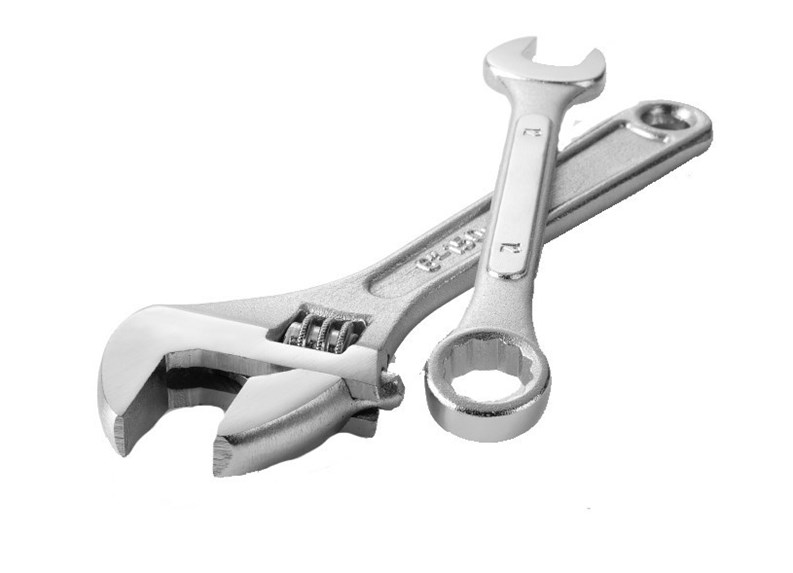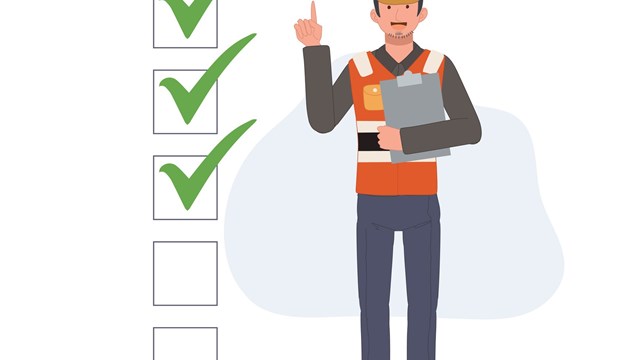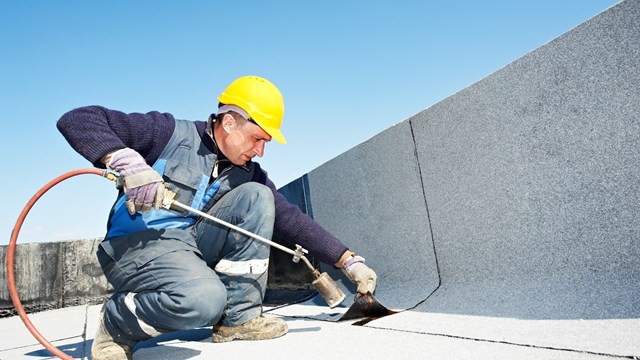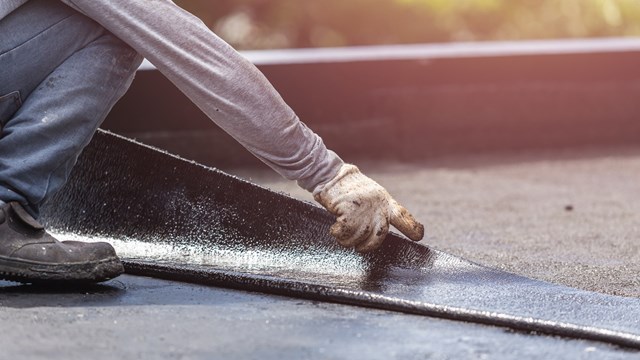Whether you live in Brookline or Boston, Cambridge or Somerville, major capital improvement projects like façade restoration, elevator refurbishment or roof replacement can be a big problem for condo, co-op and HOA boards and managers—especially if they haven't been planned or budgeted for.
There's always the temptation to say, "There won't be any problem with the roof for another three years, at least," or "We'll look at the cost of replacing those old windows next year," or "We'll think about getting a special assessment in two years or so."
If you're not careful, it can only take one major problem, such as the roof developing a serious leak, to throw the board into a panic, and residents into mutiny.
And true, while every building board or condo association should use the services of a CPA or other financial professional to help them navigate the waters of funding, there are some things that informed board members and managers should know to make things go smoother.
Reserve, Reserve, Reserve
When it comes to major capital improvements, the phrases most important to know are "reserve study" and "reserve—or contingency—fund."
What are some of the biggest capital improvement projects a condo building can make? Answers vary depending upon which financial professional or engineer you ask, but there are some common responses:
Bob Burns, PE, of Burns and Associates in Portsmouth, New Hampshire, names exterior repairs, like roofing, pavement, painting, decks and balconies.
Rajiv Laroia, head of the real estate committee of the Massachusetts Society of CPAs and the principal of Laroia Realty on Beacon Street in Boston, names boiler replacement, mechanical systems, roof replacement and balcony repair. "It's basically similar to the needs of a single-family home," he says.
Fellow CPA Michael Esposito, audit partner of New York-based Kleiman and Weinshank, which does work in several Northeast states including Massachusetts, names lobby improvements as well as exterior façade work as the main culprits when it comes to whittling down an association's bottom line.
According to Esposito, other locations along the Eastern seaboard are somewhat different. For example, he says, in New York City, exterior work is very common due to that city's Local Law 11, which mandates exterior façade inspections every few years. "If you walk around Manhattan," he says, "you'll see a sidewalk bridge [scaffolding] on every block."
Also, he adds, New Jersey sees some of the worst of it as far as damage to facades are concerned, with apartment buildings standing alone on the cliffs of the Palisades, exposed to the wind and the rain.
On the other hand, Boston's proximity to the ocean adds in the corrosive properties of salt water, which over the years can take a toll on all parts of a residential building's exterior and systems.
Varying Costs
Wherever your development is located, the cost of all these improvements can vary quite a lot. "For roofs," says engineer Burns, "we quote $2.50 a square foot. For pavements, with resurfacing an overlay over the original pavement, we price it out at $0.90 to $1 per square-foot."
Laroia says that in his experience, "A boiler replacement in a 25- to 30-unit condo can cost $30,000 or $35,000. A balcony repair, to either fix or reinstall the balcony, can cost between $50,000 to $100,000 in a 15- to 30-unit condo."
Indeed, those balconies can be pesky, especially in our area. In Boston and Brookline he says, many of the buildings that have been put up during the past five years have had their balconies installed incorrectly, and problems—such as water getting in between the wall and the balcony—can easily ensue.
As for HVAC jobs, says Laroia, they all depend on the size of the building and the type of system—they can cost between $20,000 or $40,000 to hundreds of thousands of dollars.
"One building in Boston has 100 or so units, and they are trying to redo their HVAC system. The cost per unit might be $20,000 to $30,000 per unit," he says. Why so much? Well, in some cases, it might take a crane to remove the old air-conditioning equipment, and "just that piece could cost $40,000, depending on the complexity."
Don't Wait for Complaints
How should a board or manager know when their roof, façade, windows, HVAC system or other components are in need of repair? The managing agent, superintendent, engineer or other professional, says Esposito, should do an analysis, taking into account the estimated life of the system and its cost. Many systems have warranties—for example a roof may have a 20-year warranty.
Some building managers or boards, unfortunately only find out when parts of their buildings are deteriorating when unit owners complain—that their faucet only produces cold water, not hot water, or that there's water dripping from their ceiling, for example.
One of the best ways to keep tabs on a building's overall condition is to conduct regular, ongoing inspections. For example, says Laroia, "The trustees might come across things that don't look right—cracks in the stucco façade, for example. Then, it's time to get the engineers in." The professionals agree that there's no substitute for inspections on a routine basis.
Reserve studies are also highly recommended. "The condo association," Laroia adds, "can use software to do such things, or use a consulting firm."
There's no time like the present to commission a reserve study. After all, if you don't know how much life is left in your building's mechanical systems, you—and your residents—could easily be blindsided with serious repair costs if something should go on the fritz. In fact, says Burns, reserve planning should be done "from the day the transition is made from developer to board control—they should have a capital reserve plan."
Even when a building is new, a study is recommended to verify that everything has been built correctly and according to plan. And as we've previously mentioned, the expected operational life and warranty periods of the various components and materials—elevators, roof systems, boilers and so forth—should be taken into account as well.
Not only accountants and financial planners, but engineers, facilities managers and technical people should be involved in your community's reserve planning. You can do a walk-around with an engineer who can tell you if your boiler looks like it has three years to go, or if a group of windows look like they'll need to be replaced in a year.
Rate of Return
With prices fluctuating and not set in stone, how can a board know how much to budget for a major repair project? Well, in addition to the cost, says Laroia, you should also figure out the rate of return on investment as well as the expected inflation rate. Then, you make your reserves a part of the condo association fee. "Also," he says, "many associations may create a five percent contingency for a 'rainy day fund.'"
"The key," adds Burns, "is to have a cash flow projection of at least 20 years out, and what goes into that cash flow projection is a contribution from each one of the members and a portion of the monthly assessment going to reserve. That portion should support replacements, 20 years down the line."
How this reserve fund is financed, adds Esposito, can depend on the income level of the building. In a wealthy building, he says, "[It can] be taken care of with one large capital assessment. In a middle-income building, you can do it over a period of time."
When Things Go Wrong
Of course, even with a warranty, there's always a chance that something will go wrong unexpectedly—for example, a boiler may have a five-year warranty, and your estimates say you won't likely need a new boiler for 15 years. But nevertheless something goes awry, and you need it replaced after six years.
If the money isn't there, or there isn't much, there are still some options. The board can do a special assessment, and can ask each resident to kick in a certain amount of money, or, in the case of a cooperative building, the board can refinance its mortgage.
An association can take out a bank loan and collateralize it with membership dues or members' contributions, says Burns. Laroia adds that nowadays, more and more condo associations are establishing lines of credit with banks.
No matter how a major repair is financed, once the project is done, you may find yourself needing to replenish your reserve fund. Once again, the building may need a special capital assessment, which can then be spread out over a month-to-month period so as not to make it too hard on the owners.
One way to prevent this, says Laroia, "is every few years, to revisit the [reserve] study to make sure the assumptions made in it are still true. That's why condo dues are adjusted from time to time, to keep the reserve fund." Others say the capital reserve plan should be revisited every few months.
The need for proper planning can't be stressed highly enough - both to make major capital improvements as painless as possible for residents, and in terms of money and inconvenience to building administrators.
One-Third are Under Funded
Sadly, even in this day and age, many condos, co-ops and HOAs are falling down on the job, and are not tending to their capital improvement budget until it's too late, or until big problems are looming. It's a pity, because if they did, they'd be saving themselves a lot of trouble down the line.
"A study done recently," says Laroia, "shows that one-third of condo associations are under-funded. What that means is that if a condo's reserve is only 30 percent funded, there is a 26 to 53 percent chance that there will be a special assessment sometime in the future. If the reserve is 32 to 70 percent funded, that means that there's a three or four percent to 10 percent chance of a special assessment."
And, he says, "If a reserve fund is more than 70 percent funded, the chances of a special assessment are less than 2.5 percent."
All of which boils down to this: to avoid both nasty maintenance surprises and unpopular assessments, take the time and make the effort to conduct a thorough, professional assessment of your building or association property. Assemble a team of professionals you trust, and commit to being proactive when it comes to your community's physical maintenance and financial solvency. Just a few preventative measures now can save you and your residents a lot of money and inconvenience down the road.
Raanan Geberer is a freelance writer and a contributor toThe Boston Cooperator.







Comments
Leave a Comment